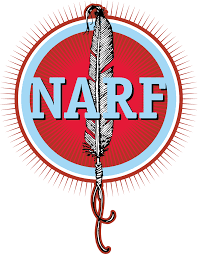Native American Rights Fund
Over the past 45 years, National American Rights Fund (NARF) has represented over 275 Tribes in 31 states in such areas as tribal jurisdiction, federal recognition, land claims, hunting and fishing rights, religious liberties, and, more recently, voting rights. NARF has achieved a number of landmark accomplishments for Native Americans that include:
Protecting and establishing the inherent sovereignty of tribes;
Obtaining official tribal recognition for numerous Indian tribes;
Helping tribes continue their cultural lifeways, by protecting their rights to hunt, fish and use the water on their lands;
Helping to uphold Native American religious freedom;
Assuring the return of remains and burial goods for proper reburial; and
Protecting voting rights of Native Americans.
THE CASE
-
Recently, NARF has litigated two successful cases against the State of Alaska for failing to comply with the language requirements of the VRA.. In the more recent case, the court ordered the translation of all pre-election materials and the posting of translators at all polling places. In 2013, the U.S. Supreme Court invalidated an entire VRA section in Shelby County v. Holder. As a result several states, such as republican controlled North Dakota, have passed more stringent voter ID rules that disproportionately affect minority communities, including Native Americans. Due to reasons rooted in the discriminatory treatment of Native Americans, many living on Indian reservations in North Dakota do not have a qualifying ID, such as a driver's license or state ID card that has a residential address on it. Thus, in both the primary and general election in 2014, many qualified North Dakota Native voters were disenfranchised because they only had a tribal ID with no residential address listed.
There will be several claims raised in the litigation for which NARF received a grant from the Foundation. Two state constitutional claims, two federal constitutional claims, and three Voting Rights Act claims. All of the claims surround the new requirements that a voter possess one of only four forms of ID in order to vote. The new voting requirement of ownership of one of four forms of qualifying ID limits the right to vote arbitrarily and unnecessarily, and disproportionately burdens Native American voters in North Dakota. The burdens are substantial for a number of people that cannot afford to drive to the nearest driver’s license site (“DMV”), which for Native Americans can be over 60 miles away. Many Native Americans live below the poverty line and the expense to travel to the DMV is too high and not worth the benefit of being able to vote. When weighed against the states interests in protecting voter fraud, which was non-existent in North Dakota, the burden on Native voters should lead to the new Voter ID requirement being overturned.
The 2017 Policy undermines the fundamental anti-discrimination aim of Title IX, makes schools less safe, and impedes women’s and girls’ access to educational opportunities. For example, the new 2017 Policy allows schools to impose more burdensome standards of evidence in determining whether sexual harassment occurred; allows schools to offer appeal rights only to named harassers and not to victims of harassment; allows schools to refuse to address off-campus harassment; allows questioning about the complainant’s sexual history; allows schools to refuse to take any interim measures to address the educational and safety needs of a survivor while an investigation is ongoing; and abandons any clear time frame in which schools must take action to address harassment complaints. In November of 2018, the Department went a step further, proposing new Title IX regulations that would further entrench these harmful policies. These regulations are expected to be finalized later this year.
With co-counsel from the Democracy Forward Foundation, the National Center for Youth Law, and Equal Rights Advocates, NWLC has challenged the Title IX 2017 Policy in SurvJustice v. DeVos in the Northern District of California, arguing that it is arbitrary and capricious in violation of the Administrative Procedure Act and asking that the policy be vacated. Education Secretary Betsy DeVos, Assistant Secretary for Civil Rights Ken Marcus, and the U.S. Department of Education are the named defendants. In addition, if the Department issues final Title IX regulations similar to those it proposed in 2018, NWLC anticipates bringing litigation challenging those regulations as arbitrary, capricious, and contrary to law.
CASE UPDATES SINCE GRANT YEAR
-
Reported that they successfully challenged North Dakota’s voter identification law which discriminated against Native Americans living on reservations who did not have a qualifying ID such as a driver’s license. Tribal IDs were not permissible if they did not have a permanent physical residential address. A post office box would not suffice.
An initial suit, Brakebill v. Jaeger, was overturned by the court of appeals. However, a subsequent suit making similar allegations on behalf of the members of the Spirit Lake and Standing Rock Sioux tribes living in North Dakota was successfully settled in February of 2020 after the District Court denied the State’s motion to dismiss.
Spirit Lake Tribe v. Jaeger
GRANT AMOUNT
$16,667 (2016)
“The Barbara McDowell grant afforded us the opportunity to give a voice to some of the most vulnerable populations in the country, Native Americans, by assisting them in a political process to which they are absolutely entitled.”
— Don Ragona, Director of Development

